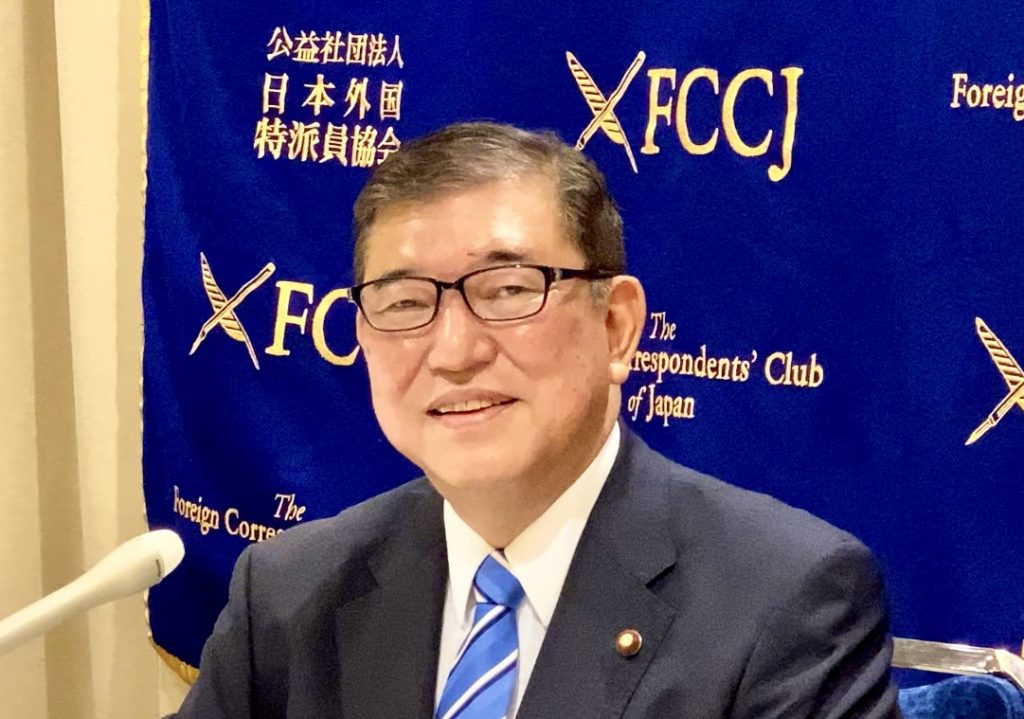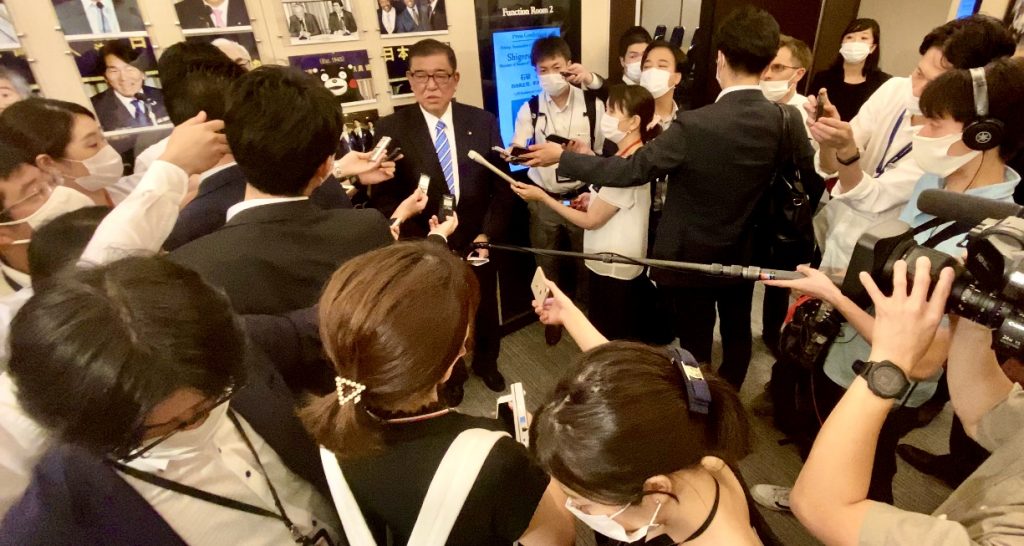



Khaldon Azhari, Tokyo
Shigeru Ishiba, one of the candidates hoping to replace Shinzo Abe as president of the leading party and thus as Japanese prime minister, emphasized that he believes it’s important to appeal to the people and all party members, even though they won’t be voting in the election.
At a press conference in Tokyo on September 11, the former defense minister responded to a question from Arab News Japan regarding election policy, which will be decided within the leadership and top faction of the Liberal Democratic Party (LDP), rather than by the general population or even by all party members.
“There were in fact many people, including people close to me, friends and so on, who advised me that when this election is being conducted under such strange rules, that I should not actually use my energies in running,” he said. “Of course, I do consider what they were suggesting, but at the same time I’m very thankful for the fact that I can stand up and say when something is not right.
“If we are not able to be standing up and appealing when we think that something is not right, well what is the point for us even to continue as politicians?” he added.
Public opinion surveys in the Japanese media put Ishiba ahead of the other candidates, Yoshihide Suga and Fumio Kishida, but because of the support of the LDP’s main factions, Suga is likely to become the next party president and prime minister.
A media analyst said Ishiba’s popularity can be explained by his clear and direct statements, which establish a sense of connection to the people, as opposed to some of the more “vague” LDP politicians.
The LDP holds a majority in the House of Representatives with 284 out of 465 seats as of September 1, and so according to the Japanese constitution its president becomes the prime minister.
At the press conference, Ishiba was also asked about the promotion of women in politics. While speculating that aspects of a politician’s job like the lack of privacy and constant work might be factors in low female representation, he acknowledged that many more women hold political positions in other countries.
He added that Japan needs to make use of the full capacity of women to get out of a cycle of shrinking economic equilibrium and that the issue needs to be recognized as a national crisis, commenting that the reasons for the lack of progress so far should also be examined.